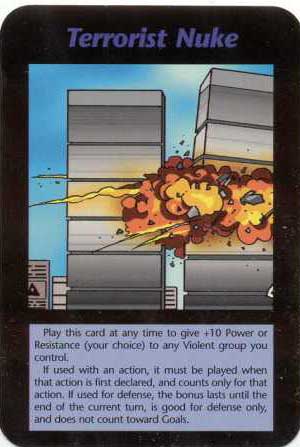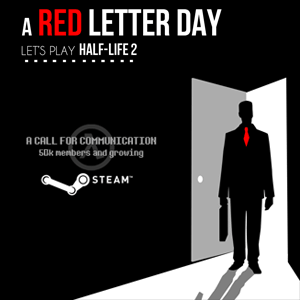I’ve been playing a bit of Magic: the Gathering – Duels of the Planeswalkers 2012 (that’s a hell of a name right there) and it’s driving me fucking nuts.
Not the game so much. I like that well enough.
What’s driving me insane is that collectible card games can’t seem to figure their shit out.
Disclaimer: I’m going to be talking about Magic: the Gathering because it’s easily the most prevelant collectible card game out there and makes for an easy example. Sorry Illuminati: New World Order fans. It’s all part of the conspiracy. Nothing to see here.
Magic: the Gathering has two main video game versions, Magic: the Gathering Online and Magic: the Gathering – Duels of the Planeswalkers (2012 being the most current version). As a recovering fan of the paper version, I hate both. Even though I play/played both. They are both vile turds as far as I am concerned.
It all has to do with the absolute mind fuck that is the pricing model for both of these games. With Magic: the Gathering Online the client is free and they’ll give you a few cards to putz around with, but that’s it. From then on you’re left to buy cards at essentially retail prices (higher if you have a cool shop). Only if you happen to collect the entire series of which there is usually a hundred or more can you request a set of the paper cards and have anything of value outside the game.
Now I know that paying for in-game goods is nothing new, but I’ve always felt the cards were a bit bend-you-over-a-barrel-and-sodomize-you priced to begin with. Paying the same (or more) for their digital counterparts always felt like driving the knife in just a bit more.
Pricing qualms aside, the reality is this: to be competitive in the game you have to lay down greenbacks like a crack addict on a bender.
Fans can make any argument they want. The more you spend the more you win. Sorry.
So needless to say the online version of the game is for hardcore fans only. It’s for the kind of people that want to spend as much money as they would on the regular game only to not play with their friends. Face to Face.
The other version of the game is Magic: the Gathering – Duels of the Planeswalkers (yes I’m going to write that out every time – if you’re sick of it now, fucking strap in buddy). This version is decidedly not for the hardcore fan. The game completely ignores one of the major components of the game it’s based on – deck building. It’s left out to make the game more accessible to beginners and the extremely casual player.
Here’s the problem: the base game only has right around 10 decks. Part of the fun of Magic: the Gathering in the first placed is the complicated effects that cards can have on other cards, and crafting strategies based on these effects. If you take out the customized decks the game gets way, way less interesting.
But in rolls the developers of Magic: the Gathering – Duels of the Planeswalkers to save the day by providing some much needed variety, by way of downloadable decks. And deck unlocks in case you don’t want to actually go to the trouble of doing that yourself. And foil conversions in case you like Magic: the Gathering – Duels of the Planeswalkers a whole lot. Like enough to spend money to make your in-game cards sparkly, which has no bearing on how they play whatsoever. But you don’t like the game enough to actually spend time playing it to unlock these worthless shiny cards.
There is a serious problem when your base game costs $9.99 and the complete version costs $36.99 and it’s been out for about 7 months.
So the game is very much for casual fans who apparently have a lot of money to get nickel and dimed.
But what about me? What about the other sane people who would like to play a collectible card game on their computer but also don’t want to spend all of their petty cash on digital cards? More importantly, what about me? And what about those people who do not think they should have to spend the same amount of money on digital cards as they do for physical cards knowing that their scarcity is absurd as they are a digital product. Furthermore, as a digital product there are not the same kinds of costs that a physical product is subject to (shipping, storage, retail cut)? Forgetting all of that, what about me?
Well I’ve got a solution and developers feel free to steal this. But don’t because I’ll find you, and pee on your bed sheets when you’re at work so it’ll be dry by the time you come home and you’ll ask your Real Doll why the bed smells like pee. Then you’ll sleep in my pee.
You take your card game and it’s first set of cards and you make a base game. You then sell this base game and hopefully it sells really well. When people buy the game they are buying the core set. But when the player first starts up the game there are a few pre-built decks with basic cards centered on basic rules and concepts.
After each game, off-line or online, the program essentially rolls the dice and a random card is given to that player from the card set they already purchased access to by buying the game. As you can weight the chances of certain cards coming up, the concept of rarity is retained. Certain in-game achievements could unlock access to new pre-built decks as well. Unlocking large numbers of cards in a group, alleviating any early game boredom that could result from having to grind for new cards with boring starter decks.
When you want to add a new set of cards you sell it as an expansion pack. The player is paying for a whole set but really all that happens is the new cards are thrown into the post-game dice roll.
Now we all know that Magic: the Gathering is priced with the knowledge that the fans are going to spend a lot of money. But for an upstart game, my system seems like a great solution.
It first eliminates a basic problem with collectible card games that is the person who spends the most usually wins the most (I know this isn’t a steadfast rule, I have in fact heard of pinger decks). As a developer you instant imbue your game with the impression that it is more than just a money sink, and don’t run the risk of driving players away because they believe they have to spend ludicrous amounts of money to be competitive.
Second, Magic: the Gathering fans will spend a shitload of money on whatever. If it’s Magic: the Gathering the fans will pay. You do not have this luxury. Expansions make the most sense for an upstart because while you make less money from the fan with the bottomless pocket book (of which you likely do not have, you’re an upstart remember?) this is made up by the casual and middle of the road fan. These are going to be most of your fans, and they are more likely to pay more for an expansion with potential access to a huge collection of cards that they would on a number of smaller pieces of dlc.
Don’t believe me? There’s a reason Starcraft II is three games not one game with a bunch of DLC. Well, I mean other than Blizzard is slow as shit at making games but that’s a completely different topic.
Last and perhaps most important is that the unlocks work as a carrot on the end of the stick. Rewarding the player at the end of the game keeps them playing. Regardless of the fact that you are only rewarding the player with things that they already paid for. In fact that’s the best part. Because the more players play, the better your chances they will spend more money on the next card set. Or tell their friends about the game and get them to try it. This also helps to promote an active community which only increases the likelihood of future sales. Not to mention that allowing for unlocks while offline can help ease the pain of a weak community if it were to come down to that.
I always liked the strategy aspect of collectible card games the most. So why don’t we try to get these games more about coming up with the perfect deck build and fine tuning winning strategies and less about coming up with a strategy to steal mom’s credit card and coming up with a good excuse for why she shouldn’t kill you when she finds out?
![Editorial: Collectible card games – figure your *bleep* out I’ve been playing a bit of Magic: the Gathering – Duels of the Planeswalkers 2012 (that’s a hell of a name right there) and it’s driving me fucking nuts. Not […]](https://steamaddicts.com/wp-content/uploads/MAGIC-cover_no_logo-616x308.jpg)


I just bought it when it was 66% off. 😛
I also play Pokemon TCG online, and I think they have a setup that is a little more reasonable. You have a lot of pre-made decks that are easy to unlock. You also have the option of buying “packs”. You need codes found on regular packs of Pokemon TCG cards. These codes unlock a pack of 10 virtual cards in the online game, and what you get is totally randomized, but corresponds directly to actual sets.
There’s a few things that make it (slightly) more sane. First, some online retailers are selling just the code. They open the packs and resell individual cards, and then also resell the online codes at a fifth of what normal packs cost. So you’re not paying full price for virtual cards (and if you choose to pay full price, at least you get actual physical cards as well). Also, people can trade cards for packs in-game. If you want a particularly rare card, you can arrange a trade with someone who has that card for X packs.
Of course, you still have to pay to play. If you play with the default decks, you’ll start getting owned after a while (the more games you win, the tougher opponents you get paired up with). But given the element of luck, you could potentially get a whole lot of good cards for a small-ish investment through trading.